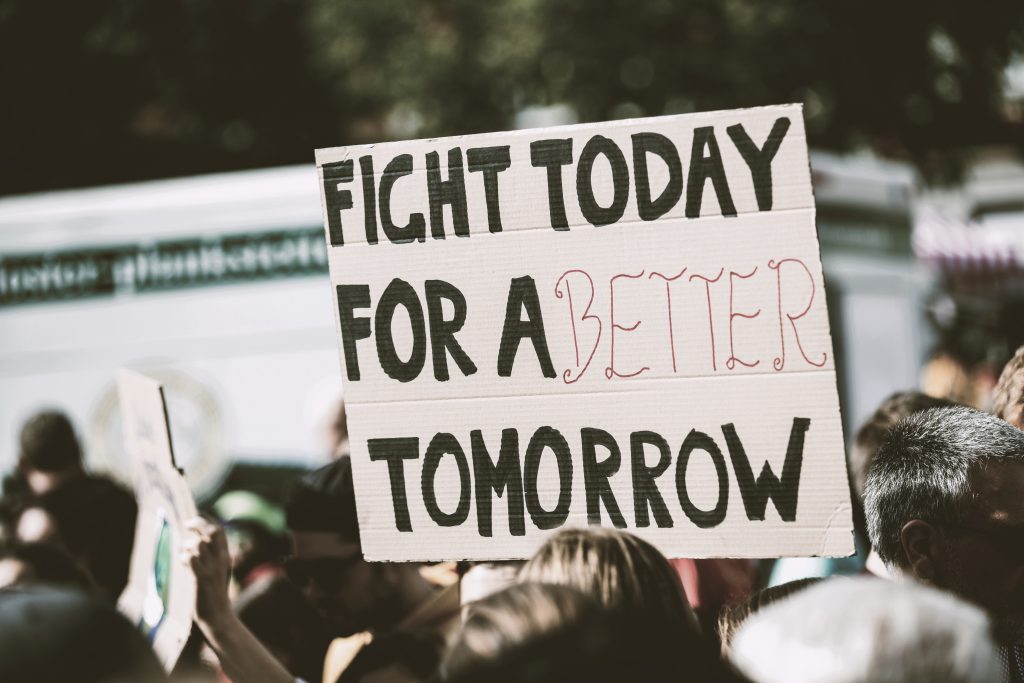
Companies used to be able to pretend their only duty was to shareholders. Those days are over.
Companies have always had a duty to their shareholders. They’ve always had moral duties as well, but they did not always have to act like it. For a long time, the dominant attitude was that business is business, and morality and politics should be left out of it.
One notable champion of this view was economist and Nobel laureate Milton Friedman. He argued that a corporate executive’s primary responsibility is to shareholders—which generally means their primary responsibility is to increase profits. Executives may support social or political causes on their own time and dollar, but that’s their decision to make as individuals, not as employees.

Friedman’s view held sway for quite some time, and many still endorse it. More and more, though, the public recognizes that this approach is actually quite misguided. This shift in attitude has been widely accepted as a good thing, but we’ve missed an important step: explaining why Friedman was incorrect, and why the new public accountability standard is welcome.
Sometimes, we’re legally obligated to do the right thing. Child labor laws, for instance, exist so that we can’t choose to prioritize profits over people. But we are not always legally bound to act one way or another. Suppose I recognize that there’s much more I could do to reduce my company’s carbon footprint. Or perhaps I recognize that I could afford to give my employees better living wages. If the minimum wage isn’t raised, or if stricter carbon emissions legislation isn’t passed, then I’m faced with a choice: Do I keep costs down, or do I do the right thing?
In cases where we have a choice, Friedman would say we should choose profits because businesses exist to make money. But he would be wrong—my moral responsibilities don’t simply fall to the wayside the moment I put on my business hat. If anything, business leaders may sometimes have more of a moral burden given the positions they occupy.
One reason for this is that different people have different responsibilities depending on their life circumstances. You may have parental obligations that I lack because you have children and I don’t. Likewise, we generally expect more from those who are in positions of power or influence since their actions tend to have a larger impact.
As a starting point, business leaders ought to try to make sure their products or platforms are not being used in ethically problematic ways. Consumers are right to demand, for example, that media giants responsibly handle misinformation on their platforms: tolerating harmful, misleading, or false information can contribute to real democratic problems (such as political polarization and the erosion of trust in experts) and medical crises (such as the Covid-19 pandemic).
Business leaders also often have larger platforms than the average individual. When it comes to speaking out against injustices, words carry more weight coming from those occupying influential positions. Similarly, corporate decisions can carry enormous social impact. It’s one thing for Average Joe not to trade in his old Ford for a more fuel-efficient vehicle. It’s another thing for Amazon to decline to upgrade to more fuel-efficient fleet vehicles.
Of course, it’s unreasonable to expect companies to devote all their resources to promoting social good. Profits obviously matter. They do not matter more than ethics, but an appropriate balance can be struck between making money and doing the right thing.
So, the public shift in holding companies accountable is welcome. But it still might be hard to understand why this shift is happening now.
One reason is that we’ve seen real progress in recent decades around reduced poverty, greater access to opportunity for marginalized groups, and more. With progress comes stronger demands for accountability. Businesses cannot attempt to remain neutral on certain moral and political issues in an era where the public recognizes that failing to stake a stand against injustices is often to be complicit in those injustices.
We’re also now in an age of widespread access to digital tools that make it much easier to hold businesses accountable. Businesses are facing significantly more pressure to be socially and politically active because consumers can make their demands heard in ways they couldn’t before.
Hopefully, all of this is welcome news. We should all be pushing each other to do better.
If any of it seems scary to you as a business leader, recognize that Friedman was mistaken about one more thing: doing the right thing doesn’t have to mean a loss in profits. The public will actively back corporations that make ethically principled decisions. Those that don’t often face backlash. These days, being ethical is good business.

